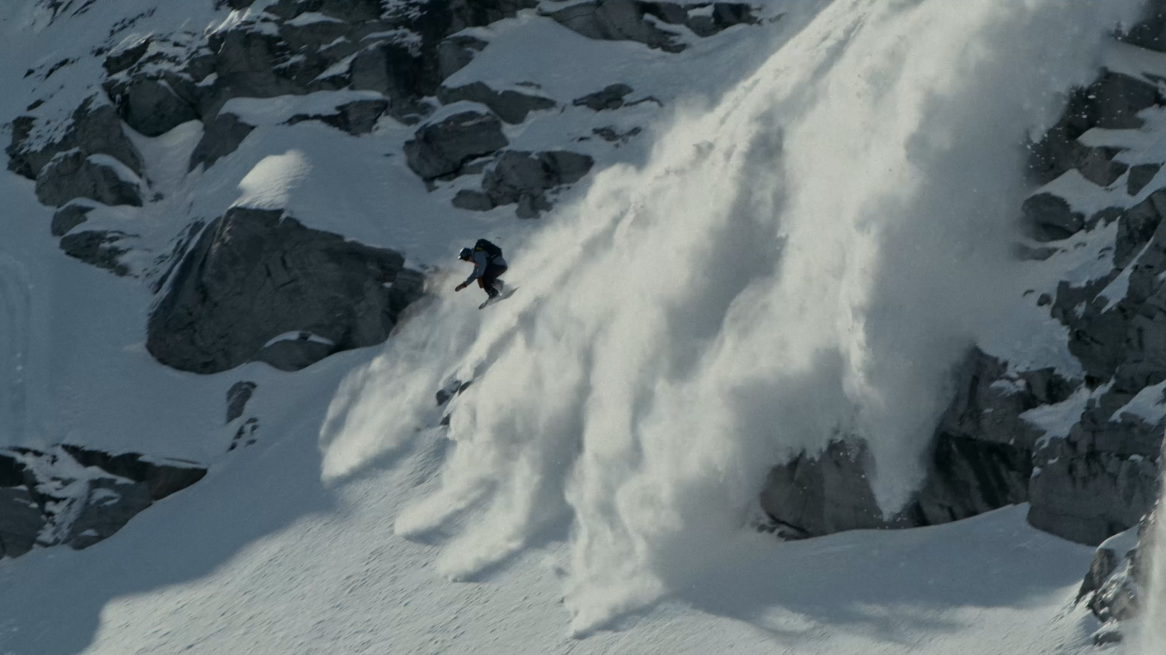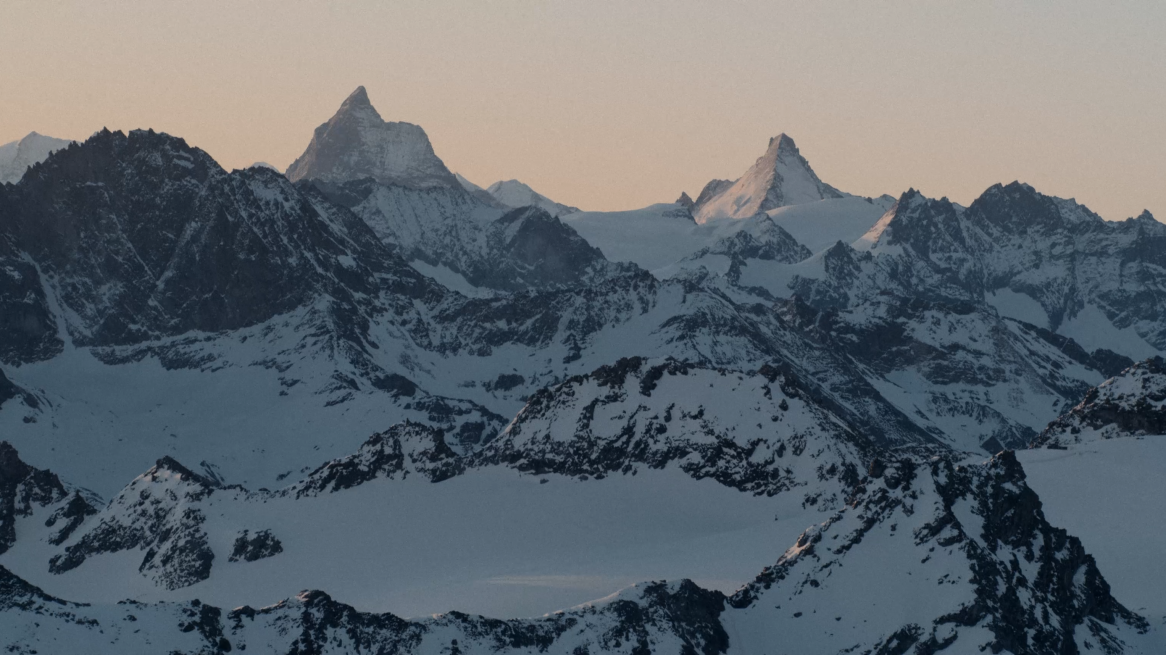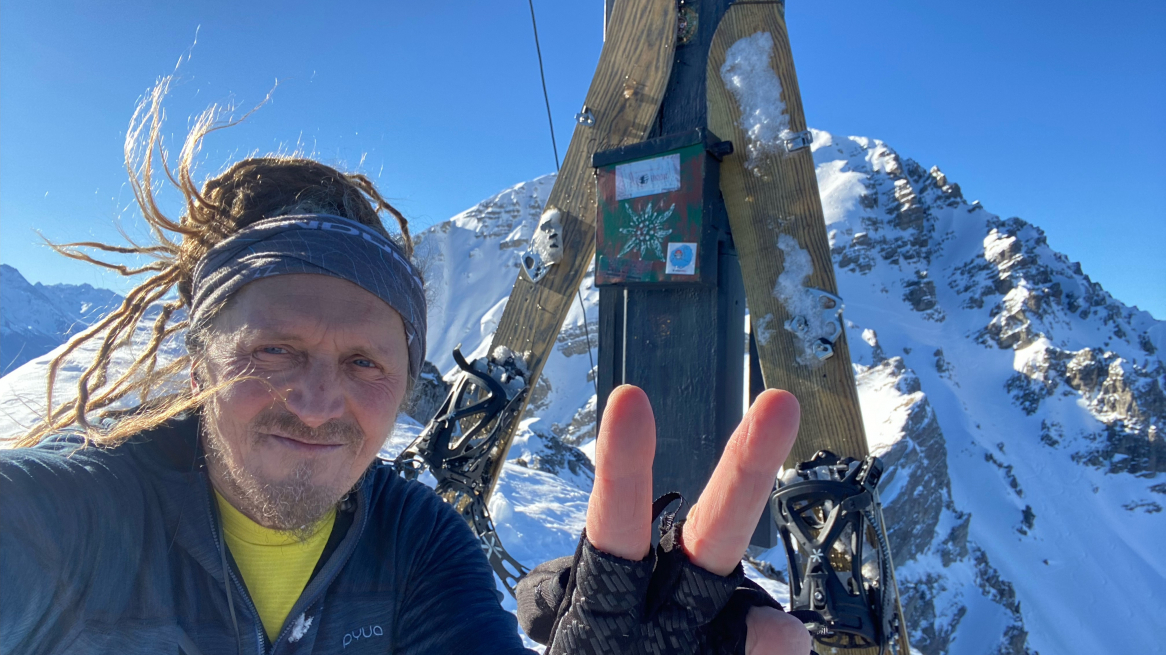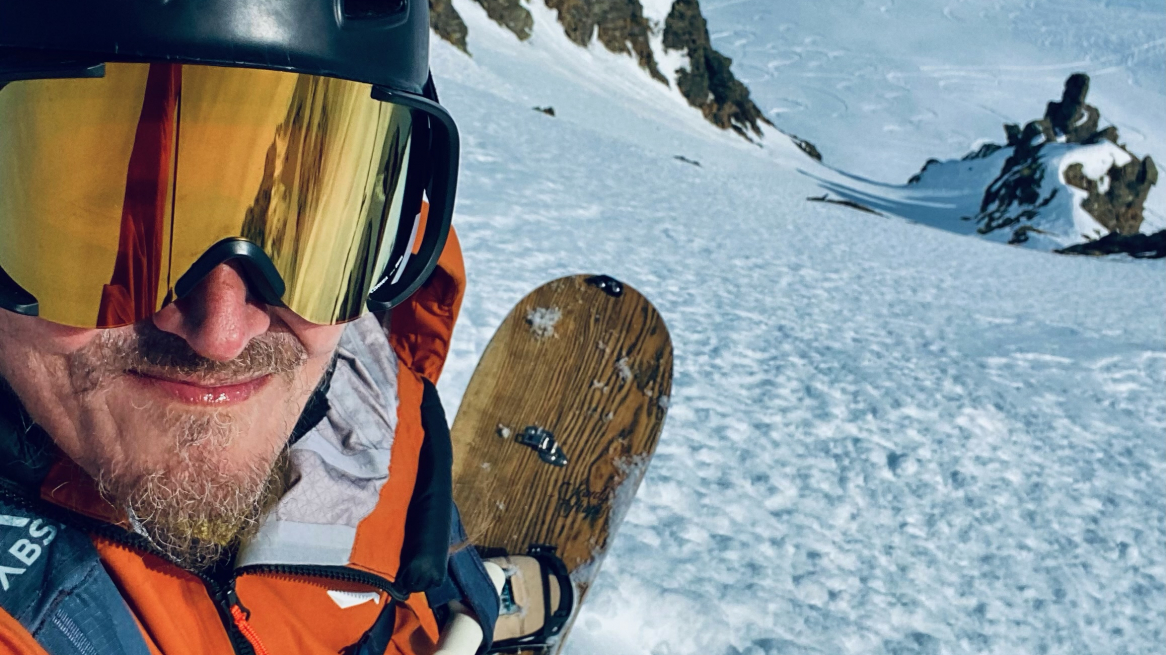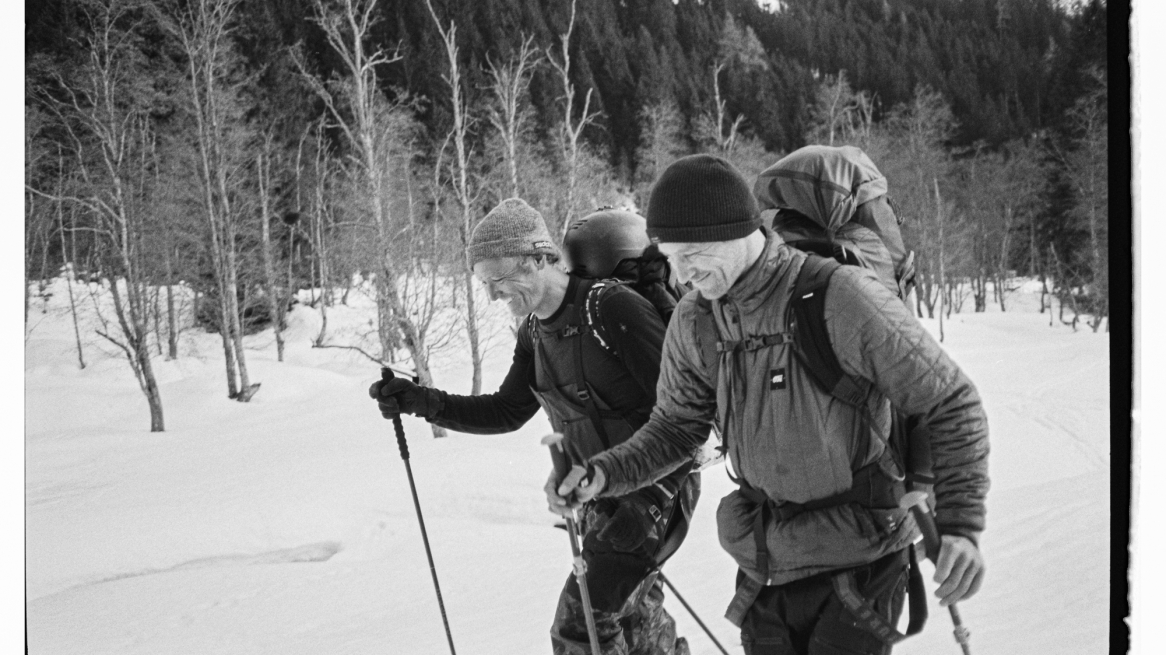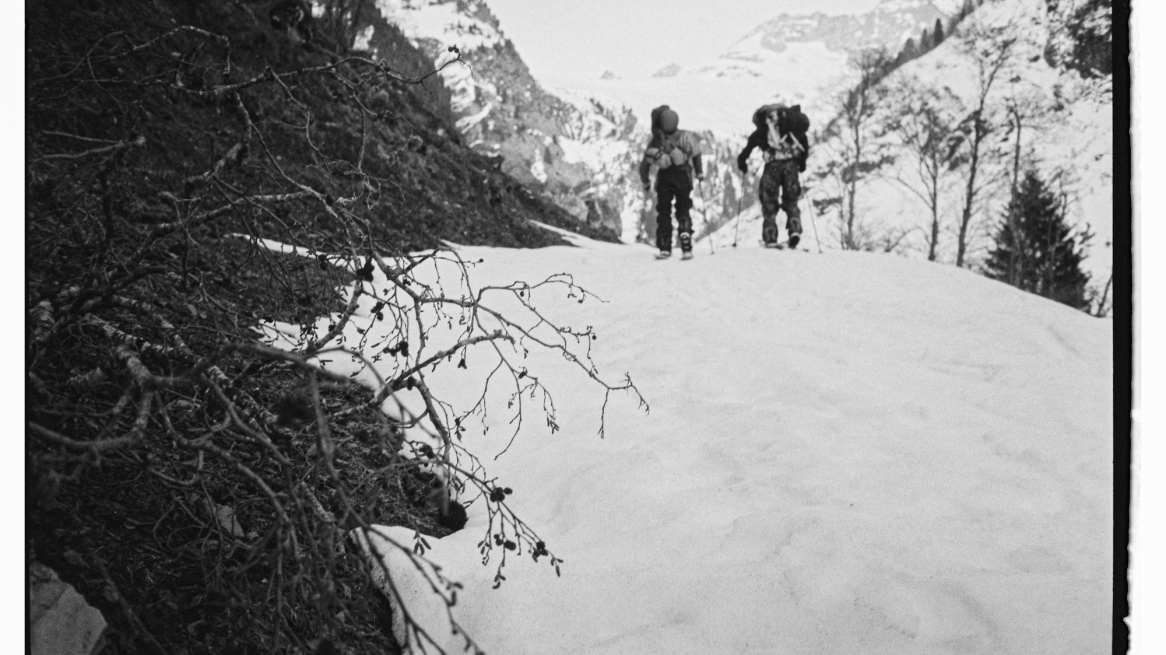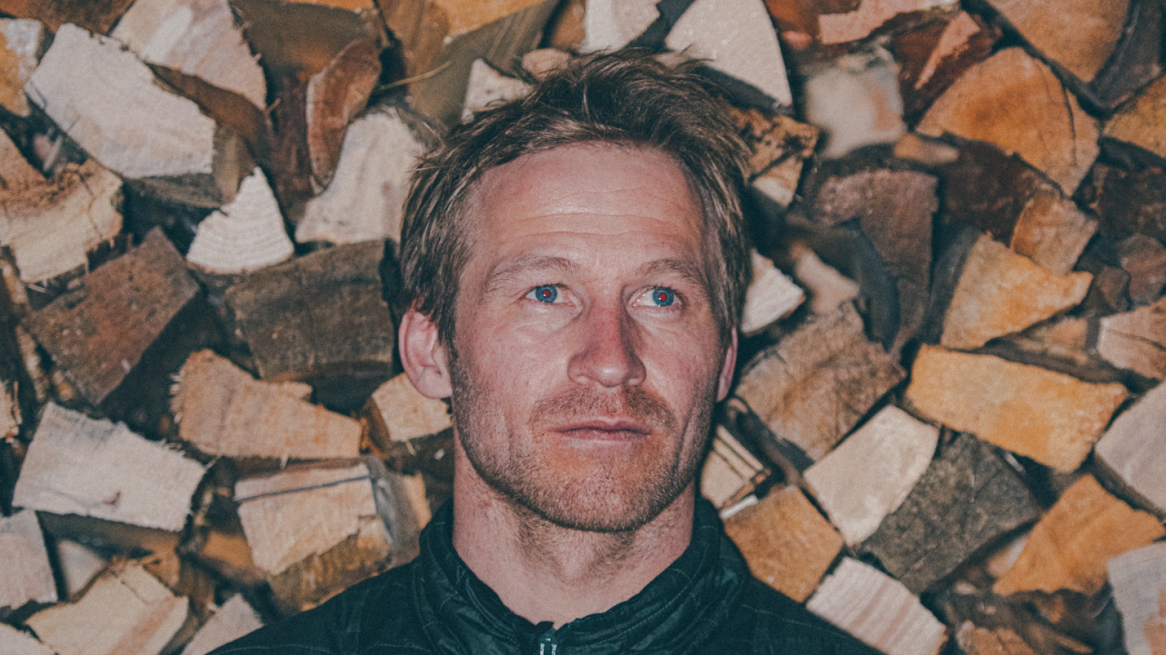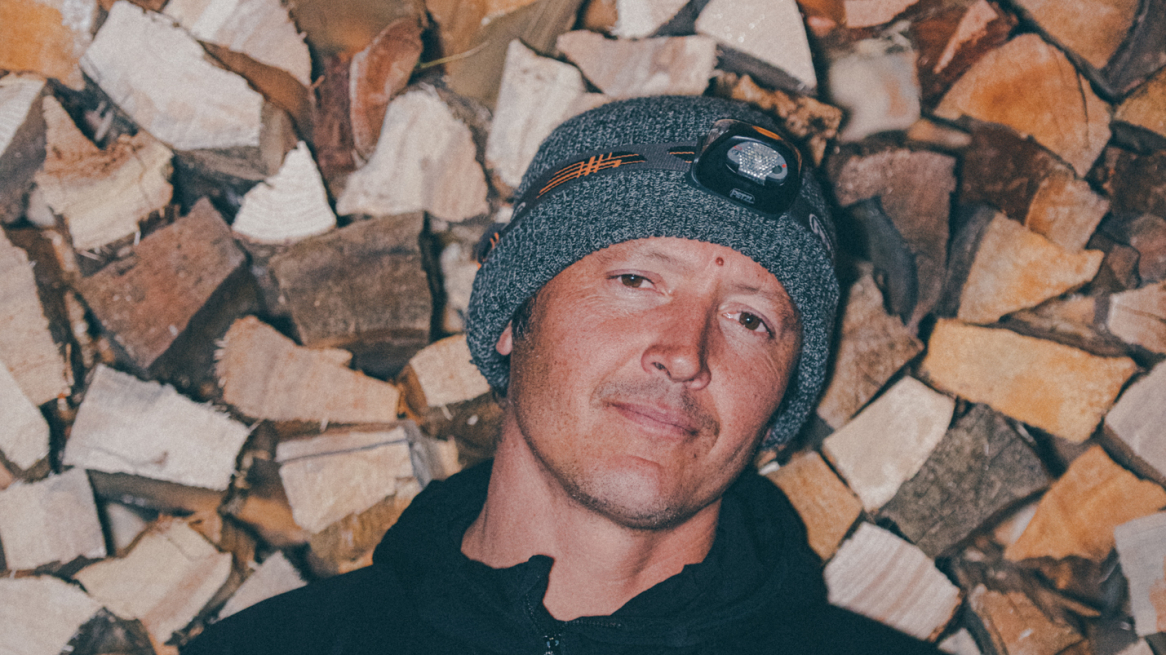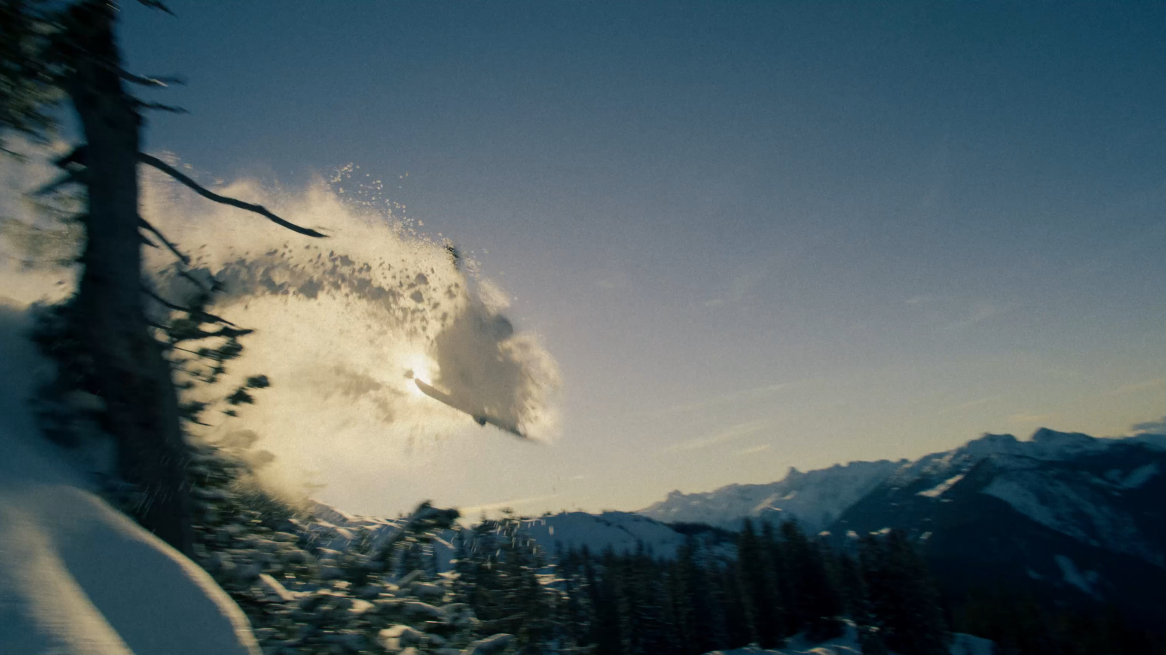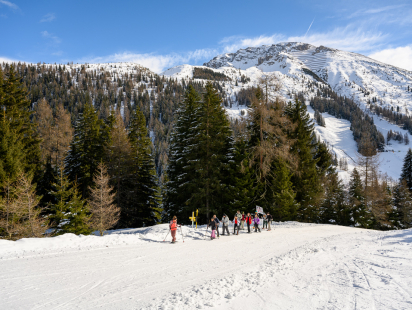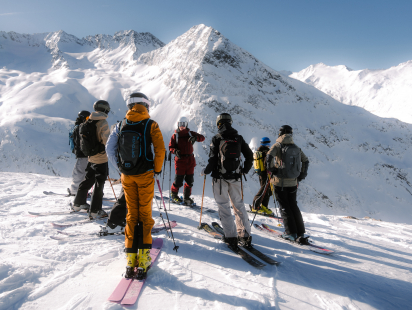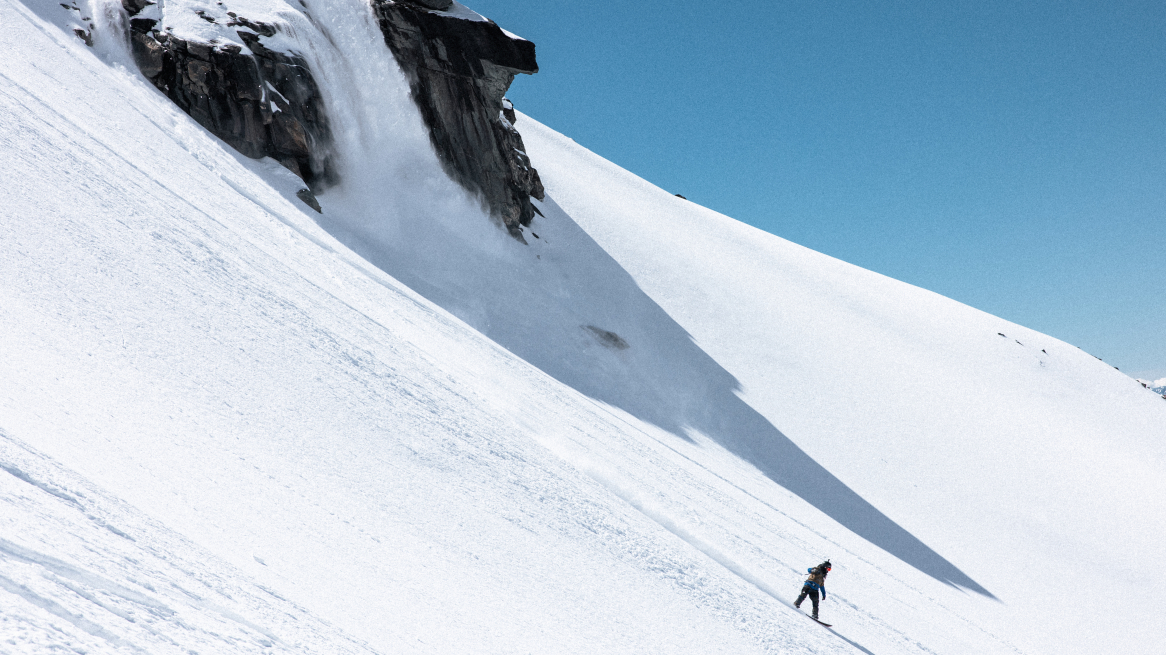
What makes mountain sports, or as in this case freeriding, so exciting? Just one of many possible answers: the complex interplay of physical and mental skills, as well as a great deal of risk management know-how. Most outdoor athletes are aware that dangers lurk on the mountain that can sometimes be life-threatening. Most are also aware that they do not live in an immortal body that is superior to natural forces. Nevertheless, a different image is often conveyed in the professional freeride scene. Chasing one fat line after the other, ideally still in party shred (several riders ride a steep slope at the same time without safety distances) - scenes like these have been playing out before our eyes as moving images in well-known freeride productions for ages. In between, there are hardly any scenes of plans that don't work out or athletes who turn back because the risk is too great or cannot be assessed.
Superhero stories, however, seem to have an expiration date. In the meantime, more and more films are appearing that focus on precisely those themes that have long been swept under the rug: Insecurity, vulnerability or fear. Topics that are undoubtedly more difficult to come to terms with than spectacular shots. Where the search for answers to many a question is perhaps also in vain: Why expose oneself to this seemingly senseless risk in the first place? How can a professional athlete in extreme risk sports act as a role model for young people? And: Is the idea of control in mountain sports basically an illusion?
These and similar questions were also the subject of the Freeride Film Festival (FFF), which made a stop in Innsbruck again this year on its tour through several countries. On November 9, not only was a series of freeride films shown at the Metropol Kino, but there was also an exciting supporting program with stage interviews and more. I spoke with Harry Putz, the long-time organizer of the festival, and snowboard pro Elias Elhardt.
Harry, what was the atmosphere like at this year's FFF in Innsbruck's Metropol Kino, and what continues to make cinema such an important medium?
Harry Putz: The atmosphere was great again. The response from the audience was consistently positive, which of course makes me very happy. As always, cinema is an opportunity to come together and share emotions. Especially when it comes to a shared passion like freeriding, you realize the importance of cinema.
Which film was your highlight of the tour this year?
That's a difficult question. It's a very long process to choose the films, every film is a highlight for me somewhere and has a unique way of making it. However, Elias Elhardt's film „Invisible Ground“ already stands out for me because it tackles the difficult subject of danger and vulnerability in freeride sports. To get the topic across so well in 34 minutes that even after three and a half hours of evening program no one in the audience felt like blinking even once was fascinating.
And now it's reached a point of evolution where protagonists who authentically show responsibility no longer immediately seem uncool.
Harry Putz
Have you noticed a change in the freeride film scene over the years, away from professional athletes as heroic supermen and towards more complex, human themes?
I think extreme sports with athletes as a marketing tool is a relatively recent history, maybe since the 90s. And now it's reached a point of development where protagonists who authentically show responsibility no longer immediately seem uncool. But that's "just" a new strand, the old one with its focus on adrenaline and the testing of limits continues to grow, people are just too horny for that. C'est la vie. But we have the freedom to decide what we want to consume, and each of us is thus also in the responsibility to themselves to consume the flood of media and content consciously.
Do you think more professionals should make it their mission to be a role model for young people in sports? Or does this mission contradict itself, because there will always be a risk with borderline athletes in outdoor sports?
Absolutely, the role model effect is damn important. With our festival, we reach a lot of people who are greedy for spectacular images and stories, and it's our responsibility how we use them to play, influence, educate and release them back home. Hence our initiative #freerideforfuture, in which we not only take on the fight against global warming, but also want to convey safety awareness.
Elias Elhardt has been a snowboard pro for many years and presented his latest film at the Freeride Film Festival in Innsbruck. „Invisible Ground“ is a snowboard film about vulnerability, in which Elias looks into the past of both their careers with Xavier de le Rue and considers their differences. However, they have one thing in common: both were recently involved in a tragic avalanche accident - a turning point in both their lives.
Elias, in your film „Invisible Ground“ you ask difficult questions about risk and unrealistic notions of control in freeriding. What was your motivation to make a freeride film of this kind?
Elias Elhardt: I basically like to deal with exciting topics in the form of films that are closely related to snowboarding - since that's my platform as a professional athlete - but can also go beyond that. To be honest, though, I first had the feeling that risk in our sport is a very privileged issue - one that you only take on voluntarily, of course, and that is also only accessible to a few people. When I myself was involved in such an accident, where I rescued a 15-year-old boy from an avalanche, who then died, I was very moved and touched by it. It made me realize that this is an important topic for which I also bear a certain responsibility as a communicator for a sport that also promotes this high-risk approach.
I think being aware of your own vulnerability, both physically and emotionally, is a good basis for making a good decision in any given situation
Elias Elhardt
You also talk about the role model effect that freeride pros have on many people, some of them young. Do you generally wish for more awareness and better communication from pros about risks and other complex topics?
I do think it's a great opportunity to use the platform as a pro athlete and talk about important social or political issues in a small community like the freeride scene. You can tell that the interest is there, and the shared passion for the sport provides a point of connection here. In the meantime, it's important to me that we find a different approach to how we talk about risk, and in doing so, also question this heroic narrative where professional athletes always cheat death and seem to be able to control the very greatest risks. I think being aware of your own vulnerability, both physically and emotionally, is a good basis for making a good decision in the situation.
Invisible Ground
Thank you for the interesting conversations!
„Invisible Ground“ is online as of January 2023
Photo credits: Carlos Blanchard, Theo Acworth, Invisible Ground, Harry Putz
Rate this article
Show me the location on the map
L - ives life to its limits, E - xperiences most of her greatest moments on the mountain, N - ever says no to good coffee and A - dores her mum's homemade sauerkraut
Similar articles
Mrs. Holle has generously provided us with a fresh blanket of snow. An impressive 50 centimetres fell…
The barn with the ski rental on Igl's village square is getting a bit long in the…
The "White Roof" a.k.a. the Axamer Lizum If you've always wanted to try snowshoeing, this is the…
There is a very lively freeride scene in Innsbruck. The Freeride Academy Innsbruck, which I am introducing…

